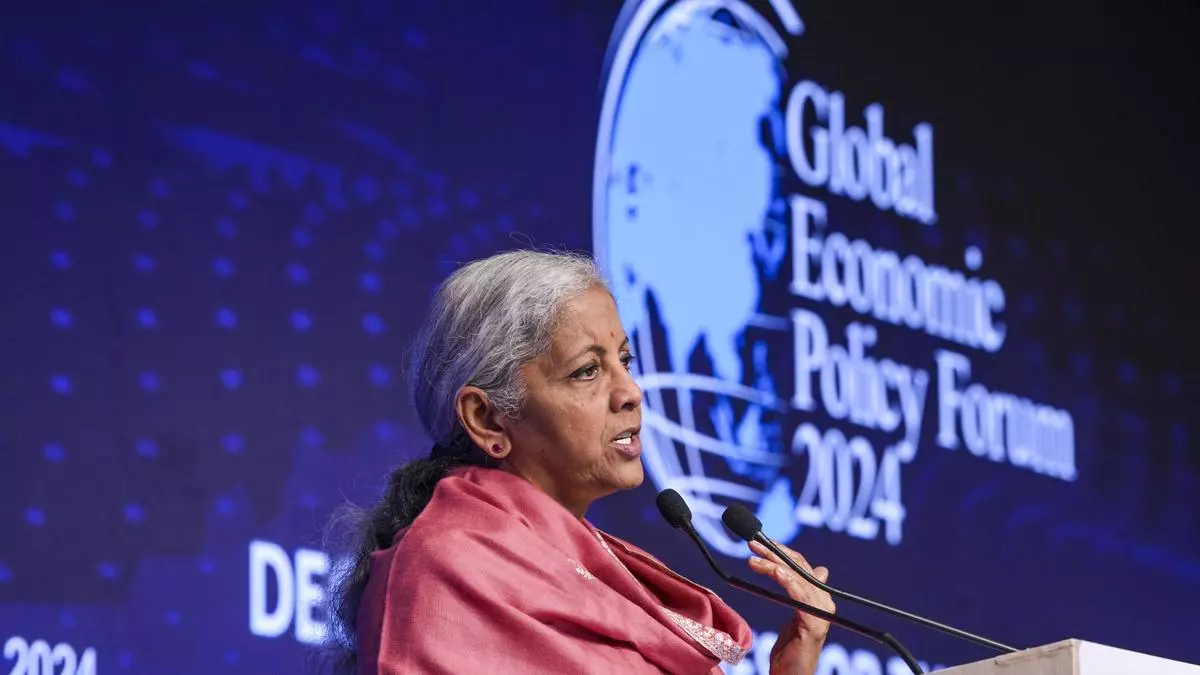
FM stresses sustainable debt management to protect future generations
NEW DELHI : Highlighting the growing challenge of inter-generational debt, Finance and Corporate Affairs Minister Smt. Nirmala Sitharaman on Wednesday underscored the need for economies to prioritise “debt management and financial security” in the coming decade. She cautioned against placing an excessive financial burden on future generations, calling for sustainable fiscal policies to address the issue.
She was speaking at the Global Economic Policy Forum organised by the Confederation of Indian Industry (CII). “It is important for us to manage our debt. Covid brought us such a situation where you had to borrow whether you liked it or not. We also borrowed. But we are super conscious of the fact that we can’t burden our forthcoming generations with debt that is not sustainable. Debt is required but in the coming decade, the priority should be to manage your finances and borrow for building assets, but it can’t be such borrowing that you leave the next generation worried about how they can service it,” Sitharaman said.
She said if not managed properly, governments would need to raise resources through higher taxes to reduce the debt burden. “Intergenerational debt is mounting on countries. It has to be passed through as taxation. You are not going to be able to generate that resource to pay back that debt that you have taken. It is absolutely important for governments and for industry to work together to see how best debt can be managed at the national and sub-national level,” the finance minister added. The theme for the CII’s forum this year is “Decadal priorities for the global economy”.
Sitharaman stressed that India Inc.’s commercial considerations should blend with the economy, nation’s priorities and strategic needs.
Asking the industry to “realign and reset” itself based on the lessons learnt in the last decade, Sitharaman said supply chains should be widespread, lest geopolitical risks should disrupt it.
The world tested the success of spreading supply chains on the principles of efficiency and scale. So, we located such production hubs where it was economically making sense and derived benefits of such concentration. Today the concentration risk is playing out in so many different ways. Today just economics doesn’t prevail. Economic and commercial considerations today will have to blend economy and its priorities with politics and strategic sense,” she added.
Talking of the climate change challenge, Sitharaman said it requires commitment of an intensity with which countries commit to remove poverty. “More than the climate challenge itself, it is the challenge of finding resources to meet those challenges. It is important that on climate, we commit ourselves to make sure our people don’t lose their hard-earned assets and lives to climate vagaries. Climate challenge will have to be looked at from various perspectives rather than just emission,” she said.
Sitharaman said technology and innovation in the agriculture sector, while ensuring food security to the world, is one of the decadal priorities. Following the success of digital public infrastructure, she said that the agriculture stack will be the next big innovation from India.
The finance minister said that bringing novel and innovative ways for agriculture and allied activities is a very strong instrument for security and containing supply side and inflationary pressure on agricultural commodities.

